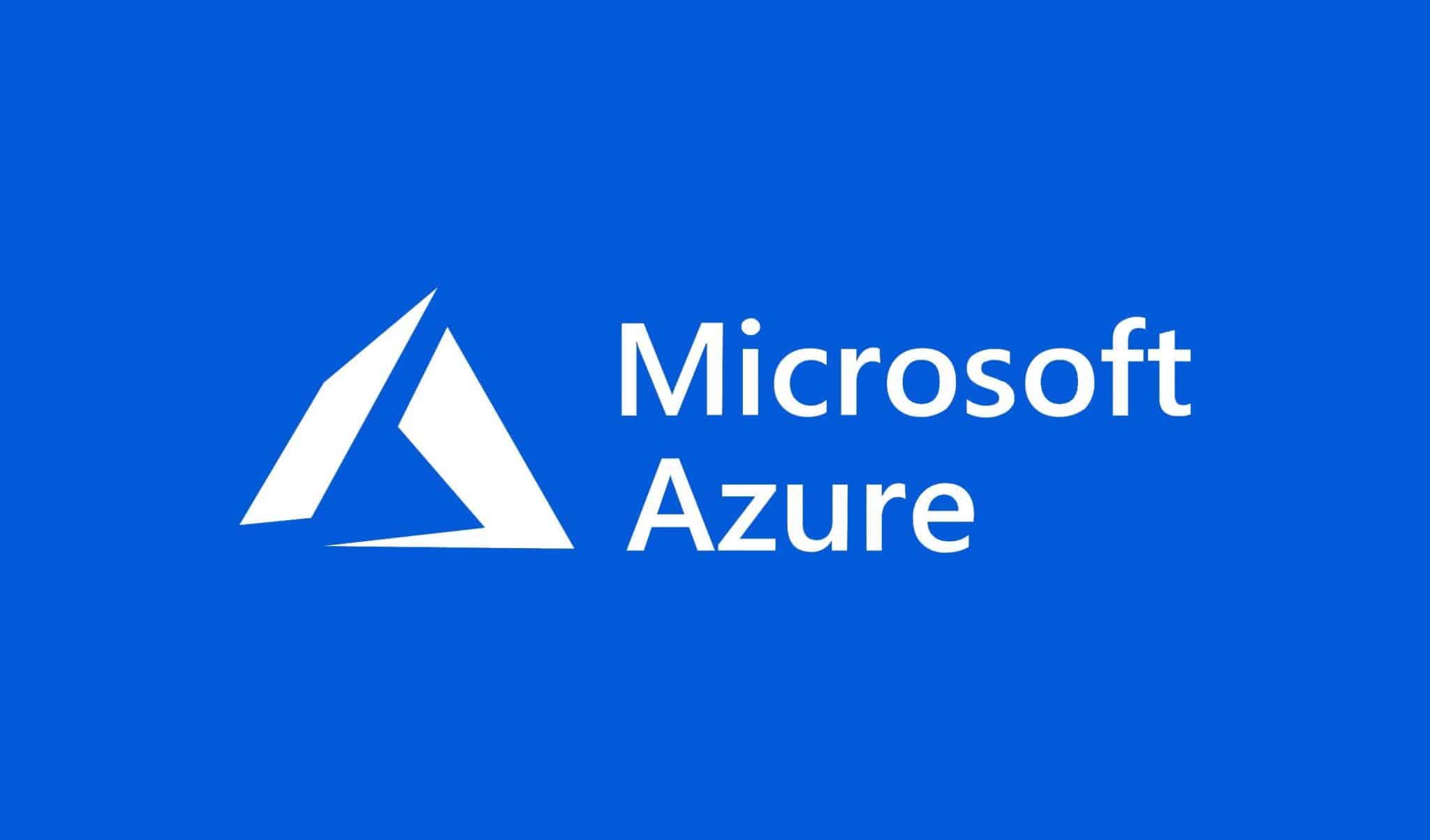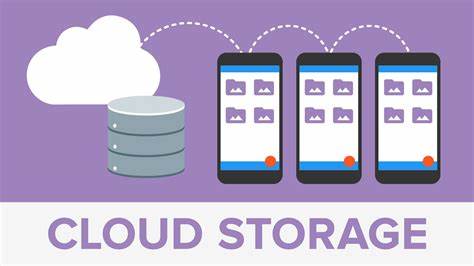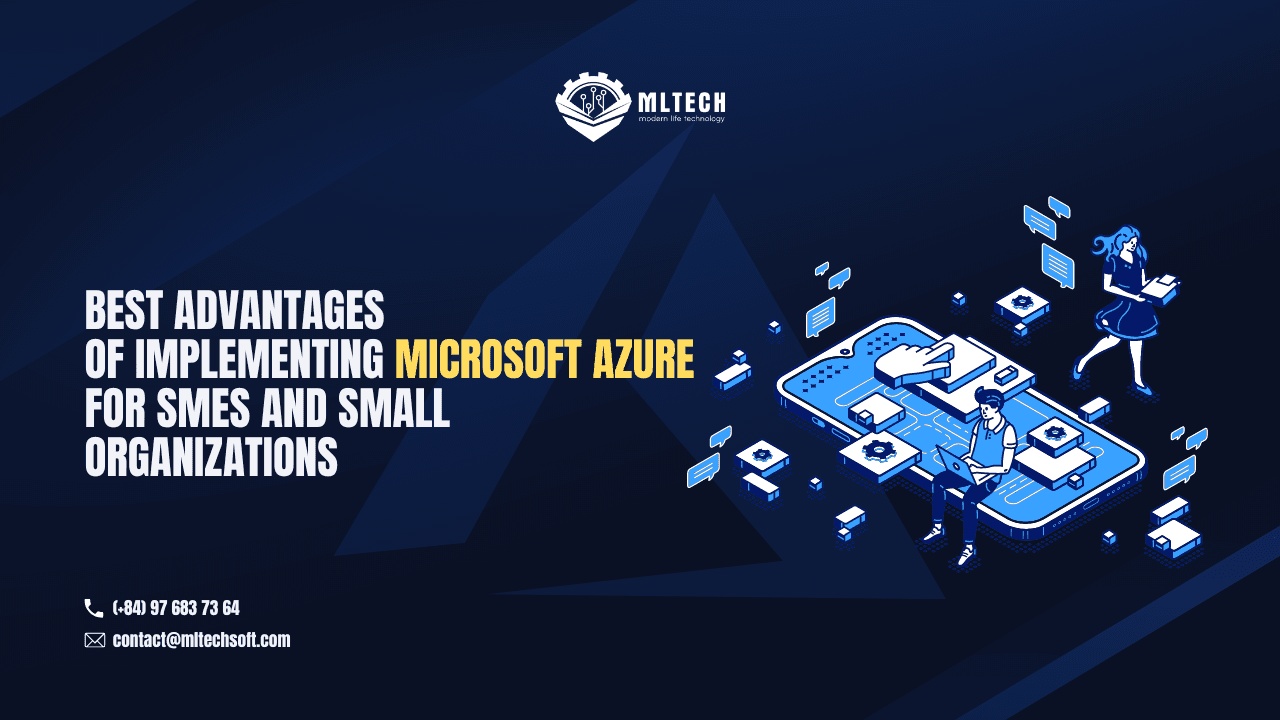When choosing a cloud provider to migrate to, businesses today have a lot of strong options. It can be hard to figure out which option is best for your business when looking at all of the options. Cost, function, complexity, and ease of transition should all be taken into account. However, there is a lengthy list of requirements that cloud providers must meet, and Microsoft Azure meets all of them. One of the best cloud providers, Azure excels in infrastructure, compatibility, and security.
Let’s go over these three main advantages of choosing Microsoft Azure in greater detail.
1. Overview of Microsoft Azure
Microsoft Azure is a growing collection of cloud services that organizations large and small can use to cost-effectively support their information technology needs while relying on Microsoft to manage the underlying infrastructure.
The cloud services that together make up Azure span many different categories, including compute, storage, and networking—but also analytics, identity management, and the Internet of Things (IoT). Using these services and the physical infrastructure behind them, organizations can move their internal and customer-facing applications alike to the cloud to benefit from its inherent scalability, flexibility, collaboration efficiency, and other features that are especially important in the new hybrid work environment.

2. Microsoft Azure is preferred by small businesses.
Azure is one of the leading cloud providers, excelling in security, compatibility, and infrastructure. Microsoft Azure is preferred by small businesses.
2.1. Security
Without a doubt, Azure’s commitment to a strong security foundation is one of its biggest benefits. Microsoft is able to provide security to all users by investing $1 billion per year in security and employment. There are a few ways Azure accomplishes this… Firstly, Azure utilizes automatic encryption. This means that everything sent within the cloud is automatically encrypted.
Additionally, Azure uses automatic detection to prevent distributed denial-of-service (DDoS) attacks. DDoS attacks are malicious attempts to disrupt a server by overwhelming normal traffic with a large amount of internet traffic.

On top of DDoS attacks, Azure ensures that any holes or hacks immediately trigger an alarm. This alert is then sent immediately, which ultimately prevents data loss. As the first cloud platform to support both software and hardware-based Trusted Execution Environments (TEEs), which ensure encrypted data is safe from unauthorized access and tampering, Azure has always put an emphasis on security.
Most importantly, Azure is thorough in backing up user data and their status of access by cross-checking with the database that stores user, admin, and customer data.
As Microsoft states: “Azure Backup provides solutions for securing data in transit and at rest.” Azure Backup provides built-in monitoring and alerting capabilities in a Recovery Services vault. These capabilities are available without any additional management infrastructure.
This backup system not only keeps your files and data secure but also protects against ransomware. It does so by implementing preventive measures against a ransomware attack and using tools to protect against every infiltration step. In addition to this, the data stored on Azure’s servers is copied onto three different disks in three different locations globally. Essentially, this makes sure that if one server farm is compromised and the disks are cooked, the service for those disks continues and is transferred to the next location.
Given this and Azure’s backup capabilities, companies are still able to access and use their applications and data in the event of an attack on the infrastructure that was supporting the internet connectivity locally. In short, if there is a single point of failure, the service continues. Security is, without a doubt, one of the biggest benefits of choosing Microsoft Azure.
2.2. Compatibility
In addition to security, it’s necessary to find a cloud provider that relieves the pain points of migration. With the cloud’s complex capabilities, migration can prove to be a major learning curve for organizations. Azure succeeds in working with your organization’s current infrastructure and expanding on it. Not to mention, if your organization is already utilizing Microsoft products, Azure is fully integrated with the existing Microsoft infrastructure, which immediately flattens the learning curve. This in turn allows your IT department to focus on your business rather than maintaining equipment or worrying about in-house capabilities.
Azure provides simple and quick app development for an organization’s current applications. Additionally, Azure Web Apps allow for an app to be built in Azure without an organization having to deploy, configure, and maintain their own Azure Virtual Machines. With this integrated app development process, the learning curve is lessened. These virtual systems also provide support for legacy systems. This means if a company has been working on an outdated system, Azure helps to either transition the old systems or update them.
This proves to be a quicker and more cost-effective migration. Another way Azure saves on cost is by allowing businesses to launch and store internal and external applications in the cloud. This allows Azure to be the best option for businesses of any size, whether you’re a small business or an established enterprise.
2.3. Infrastructure
Lastly, Microsoft Azure has strong Infrastructure as a Service (IaaS) and Platform as a Service (PaaS) capabilities. They lead the way with IaaS and PaaS, offering rapid deployments. Their IaaS allows an organization to operate on a cost-friendly pay-as-you-go model, meaning you only pay for what you use. Azure’s PaaS works to let your organization create its own web apps and solutions while eliminating the need to buy and maintain the underlying groundwork.
One interesting feature on Azure is the automatic patch management, which leaves the update schedule and implantation up to Microsoft. This allows organizations to concentrate on their applications. The idea behind this is to reduce overhead and workloads. Because Azure allows for off-site servers, an IT department can focus on the security of the systems rather than updates and servers. On top of this, Azure allows an organization to decide whether they operate on a public cloud or not.
Overall, Azure’s scalability capabilities help an organization meet IT demands. Their infrastructure allows an organization to scale up or down within minutes, creating a more personalized feel for your business. Because Azure’s infrastructure is designed for scalability, you can be confident that you are only paying for what you require—Azure adapts to you.
3. Why should you use Microsoft Azure? Three Benefits for Small Businesses
To help you better understand how Azure can help your small or medium-sized business achieve your goals, let’s take a closer look at three specific benefits that all SMEs can appreciate.
3.1. Scalable Cloud Storage
Azure provides opportunities for scalable storage to meet the growing data and performance needs of a small business. Azure Blobs enables such scalable storage of unstructured data and can be enhanced with big data analytics capabilities as needed. And with another Azure Storage product, Azure Files, and the SMB protocol it supports, you can perform swift data migration to the cloud with no coding involved.

3.2. Seamless Integration
Azure-hosted apps can integrate with Microsoft’s SaaS tools to increase the productivity of your employees and provide advanced analytics. For example, you can embed SharePoint functionality in your Azure environment to build up task management or document processing workflows for your team or leverage the broad analytical capabilities of Power BI to get insights from your data stored in Azure.
3.3. Maintenance Free Email Servers
With Azure, small businesses can get a maintenance-free cloud-hosted email server (Microsoft Exchange Online) synced with Azure Active Directory for backup and access management. With Exchange Online, you do not need to manually update your email servers to get the most up-to-date functionality. You have antispam and antimalware protection already included, along with the support of mailboxes up to 50 GB each and access to the email service from mobile devices.

Conclusion
When a small business decides to move to the cloud, Microsoft Azure is definitely something to think about, especially if they already use Microsoft products like Windows or Microsoft Office (since Microsoft Azure does not charge double for existing licenses). Azure reduces IT costs and ensures high availability and security for your infrastructure assets if the migration is carried out correctly.
If you don’t, a resource-hungry and poorly organized infrastructure could cost you a lot. MLTech Soft is here to help you if you’re not sure if your company has the right skills to make the migration go smoothly.






